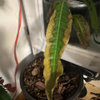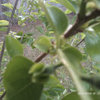Is hybrid products good for health?
kushy28
11 years ago
Related Stories

SHOP HOUZZGifts for Health and Wellness
Help them feel good with a gift that supports well-being
Full Story
HOME OFFICESStand-Up Desks Rise to Health Challenges
Sitting all day may be wrecking your health. Are you going to stand for that?
Full Story
HOME TECHGadgets Help You Watch Your Health at Home
See the crop of new devices that can monitor your body's vital signs and environment for health, fitness and fun
Full Story
UNIVERSAL DESIGNKitchen of the Week: Good Looking and Accessible to All
Universal design features and sustainable products create a beautiful, user-friendly kitchen that works for a homeowner on wheels
Full Story
PRODUCT PICKSGuest Picks: Good Luck in the New Year
20 cheerful symbols of luck represent good fortune in 2012
Full Story0

PRODUCT PICKSGuest Picks: Beautiful Things You Can Feel Good About Buying
Upcycled, ecofriendly or just made responsibly, these home accessories and furniture pieces will keep your conscience clear
Full Story
GARDENING GUIDESThe Poop Scoop: Enrich Your Soil With Good Old Manure
Get over the ick factor already — this natural super-ingredient for soil has so many benefits, you'll wonder why you ever went chemical
Full Story
HOME TECHReady to Bid Good Riddance to Charging Cords?
A new breed of base stations will reduce wires, decluttering homes and saving sanity everywhere
Full Story
FARM YOUR YARDHello, Honey: Beekeeping Anywhere for Fun, Food and Good Deeds
We need pollinators, and they increasingly need us too. Here, why and how to be a bee friend
Full Story
PETSHow to Help Your Dog Be a Good Neighbor
Good fences certainly help, but be sure to introduce your pup to the neighbors and check in from time to time
Full StoryMore Discussions








Charlie
fruitnut Z7 4500ft SW TX
Related Professionals
Surprise Landscape Contractors · Wake Forest Landscape Contractors · Bethel Park Landscape Contractors · Cockeysville Landscape Contractors · Costa Mesa Landscape Contractors · Crystal Landscape Contractors · Fort Mill Landscape Contractors · Hickory Hills Landscape Contractors · Little Ferry Landscape Contractors · New Brighton Landscape Contractors · Oak Forest Landscape Contractors · Oviedo Landscape Contractors · Paramus Landscape Contractors · Setauket-East Setauket Landscape Contractors · West Orange Landscape Contractorscousinfloyd
Edymnion
fruitnut Z7 4500ft SW TX
fabaceae_native
alan haigh
cousinfloyd
manfromyard
yukkuri_kame
cousinfloyd
canadianplant
yukkuri_kame
cousinfloyd
yukkuri_kame
Edymnion
alan haigh
kushy28Original Author
cousinfloyd
john_in_sc